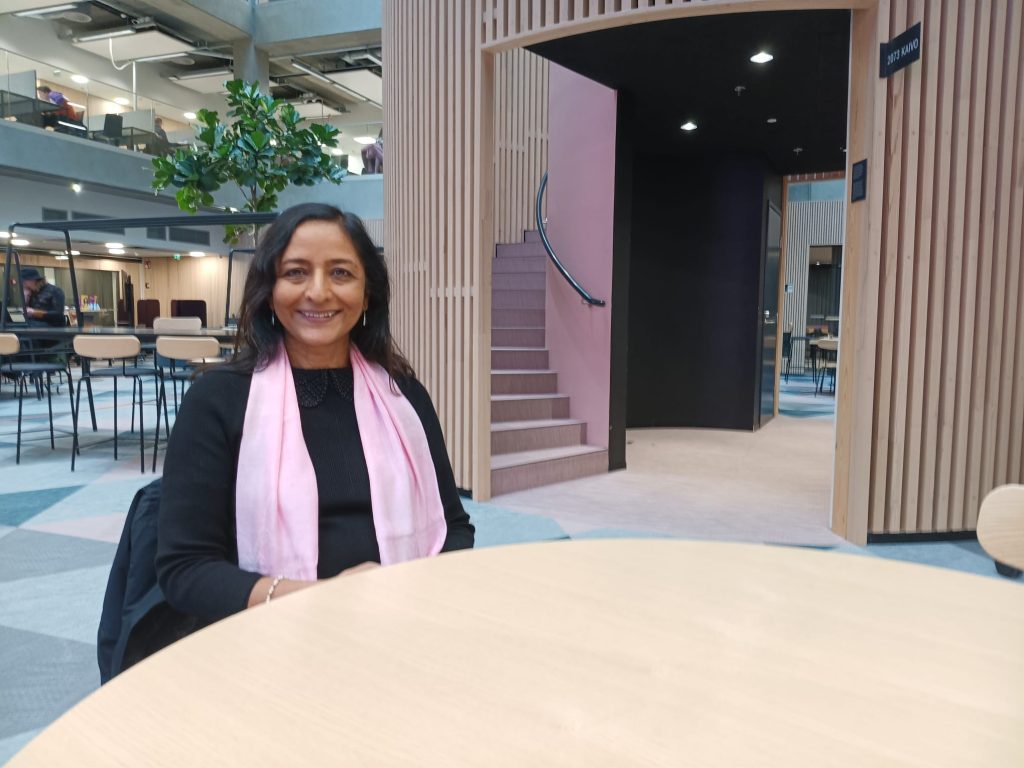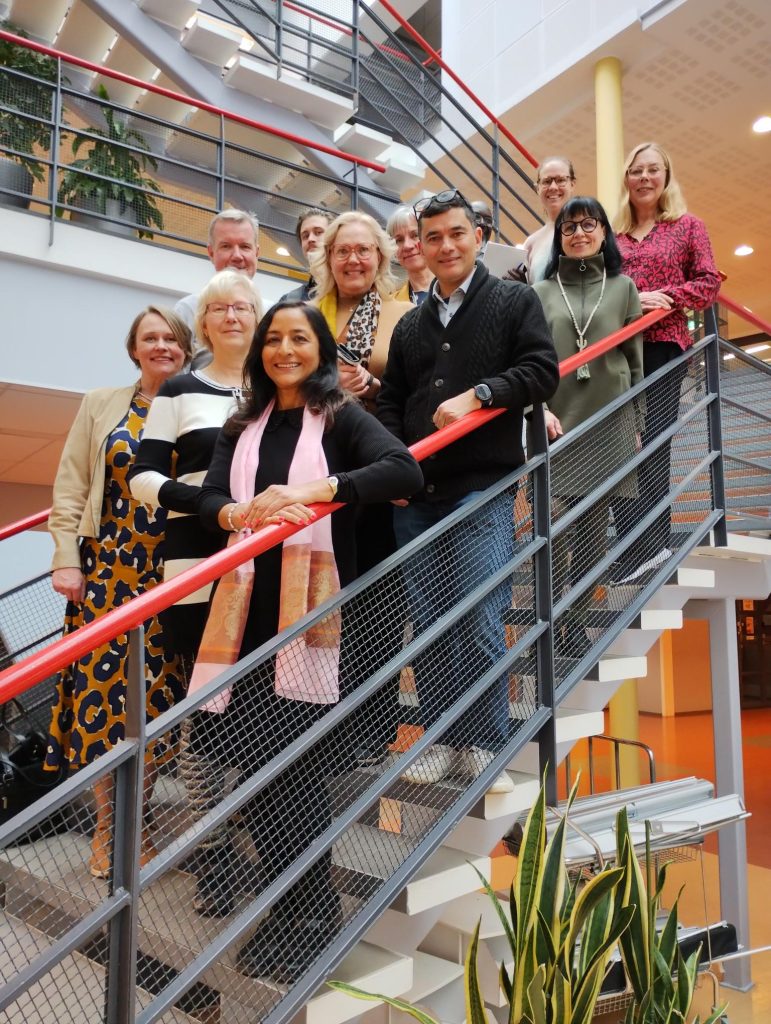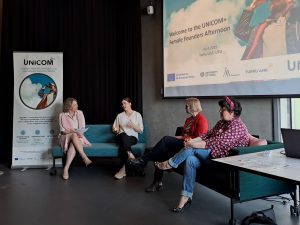Yhä useampi nuori Suomessa kokee yksinäisyyttä, ulkopuolisuutta ja eristäytyneisyyttä. Tähän ongelmaan pyritään puuttumaan NOPPA-hankkeella, jossa osallisuutta lisätään pelillistämisen avulla. …
Tekijät | Authors

Empowerment through diversity in entrepreneurship education – Interview with Dr Spinder Dhaliwal
Entrepreneurship educators around the globe are increasingly aware of diversity and the impact of it on drivers, experiences, and outcomes of entrepreneurial activities. However, most of the teaching cases in textbooks still provide a limited image of entrepreneurial paths, its struggles, and successes. To inspire, support and motivate all students regardless of their gender or ethnic background and to help them to reach the full entrepreneurial potential, entrepreneurship educators need to be aware of diversity in entrepreneurship. Real-life entrepreneurial stories from different contexts are enriching the landscape of teaching resources in entrepreneurship and thus, support the educators, students, and practitioners to gain novel insights.
Diversity is entrepreneurship is a topic which is becoming more and more relevant also in Finland. To encourage all groups in societies including females, ethnic minorities, and immigrants towards entrepreneurial pathways, positive and diverse role models are needed.
Dr Spinder Dhaliwal, Reader in Entrepreneurship in Westminster Business School at the University of Westminster in London, recently gave a visit to Turku University of Applied Sciences. Spinder has an extensive background of diversity issues as a researcher, author, lecturer and public speaker.
During Spinder´s visit we also had an insightful chat regarding the timely theme diversity in entrepreneurship since Spinder is the editor of the recently published Book, Cases on Entrepreneurship and Diversity.
The book addresses through rich case studies issues like entrepreneurial mindset, overcoming discrimination, access to finance, push and pull factors towards entrepreneurship and much more. Each chapter has learning outcomes and discussion questions. Therefore, the book is a very good tool for any entrepreneurship educator.
Interview with Dr Spinder Dhaliwal
You have published several books that revolve around the minorities in entrepreneurship such as young entrepreneurs, The Millennial Millionaire, how young entrepreneurs turn dreams into business, and Asian entrepreneurs, Making a Fortune – Learning from the Asian Phenomenon Capstone. You have also stressed the often neglected, but the pivotal role of Asian women in business by giving a voice to Asian females though your study Silent Contributors – Asian Female Entrepreneurs and Women in Business.
The real life business experience from a young age enabled me to be a more authentic researcher in later life
What was the trigger that raised your interest to start researching diversity in entrepreneurship? Can you tell us little bit about your story towards an academic in entrepreneurship?
– Like many second generation Asians from Punjab, India, who migrated to the UK, I grew up in a small shop. My family, I have three sister, lived above the shop and my whole childhood was about running the business. We literally worked all hours as a family and it instilled in me a strong work ethic and an appreciation of the hardships as well as rewards of running your own business. We were often facing racist abuse as one of the only Asian families in the area at the time. My parents wanted their daughters to be educated so that we would have a better life. My studies drew me into academia and this enabled me to research an area I had lived – Ethnic minority entrepreneurship. I was also writing for the Asian press at the time and meeting a lot of entrepreneurs, some of them very successful and this network was the basis of my books. The real life business experience from a young age enabled me to be a more authentic researcher in later life, having faced a lot of the challenges.
You are also a lecturer in entrepreneurship. Why does diversity matter in entrepreneurship education? Why do we need books like Cases on Entrepreneurship and Diversity?
– Given the wide range of international and home students most Universities enroll, it is essential to have real life cases of real entrepreneurs from around the world. Our students come from virtually every country in the world and so we need to respect and appreciate this and use material that is current, diverse and which illustrates what entrepreneurship is really about in all its guises. Most graduates will work in companies with a diverse work force or run businesses with multiple stakeholders so they need to appreciate diversity and fully embrace the opportunities it offers.
The book is full of inspiring stories covering groups like female entrepreneurs and migrant entrepreneurs. Despite the different contexts, there seem to be some similarities in these stories as well. What would be your key message to entrepreneurship educators, students, and business practitioners?
It is about people so is not an exact science
– Entrepreneurship is not limited to just small and medium enterprises. It impacts and includes many parts of the economy. It is about people so is not an exact science. The key messages from the cases are around resilience and hard work. You require personal self confidence and a belief in yourself and your business. You need to deal with disadvantage, disability, prejudice and keep pushing ahead. You need to embrace failure and learn from it and to listen to the market. The people in the cases kept going against the odds, and all from very different types of businesses and international settings.
Westminster Business School is a truly multicultural study and work environment. We often tend to focus on challenges of multicultural environments and diversity, in general. To finish this interview, please tell us about the bright side of diversity. What are the strengths and richness of diversity for universities, business communities and companies?
Diversity brings a richness to the Business School
– Diversity brings a richness to the Business School. Students brainstorm far more interesting ideas and think outside the box when they are in a diverse group. It makes for more interesting dynamics, richer presentations and pitches as well as appreciating and understanding different viewpoints, learning styles and cultures. Students can end up with a network of international life long friends.
Thank you so much for visiting us in Turku and sharing your insights related to this very relevant and timely topic.
– I really enjoyed my trip to Turku and enjoyed meeting and listening to some very entrepreneurial students and engaging with staff who are doing some fantastic research. It was heartening to see that Turku University of Applied Sciences is embracing diversity and appreciating that they need to better understand the international student body, many of whom are from India. The positive welcoming approach they are taking will serve them well for the future and ensure success.

Picture 1. Entrepreneurship and value creation Research group and Dr Spinder Dhaliwal.
References:
Dhaliwal, S. (Editor) Cases on Entrepreneurship and Diversity (2024). Edward Elgar Publishing.
Dhaliwal, S. The Millennial Millionaire, how young entrepreneurs turn dreams into business (2017). Palgrave.
Dhaliwal, S. Making a Fortune – Learning from the Asian Phenomenon Capstone, John Wiley and Sons (2008).
Authors:
Interviewer: Anette Kairikko, Principal lecturer, Entrepreneurship and value creation research group, Turku University of Applied Sciences
Interviewee: Spinder Dhaliwal, Reader in entrepreneurship in Westminster Business School at the University of Westminster, UK









Yrittäjyys on. mielentila ja elämäntapa, sitä löytyy kaikista yhteskuntaluokista ja väestöryhmistä. Yrittäjyys on inhimillistä toimintaa, joka tavoittelee innovaation kautta omaehtoiseen toimeentuloon.
Kiitos kommentista! Yrittäjyys on todellakin monimuotoista ja sen näkyväksi tekeminen yrittäjyyskoulutusmateriaaleissa monipuolisin ja vaihtelevin esimerkein on ensiarvoisen tärkeää.